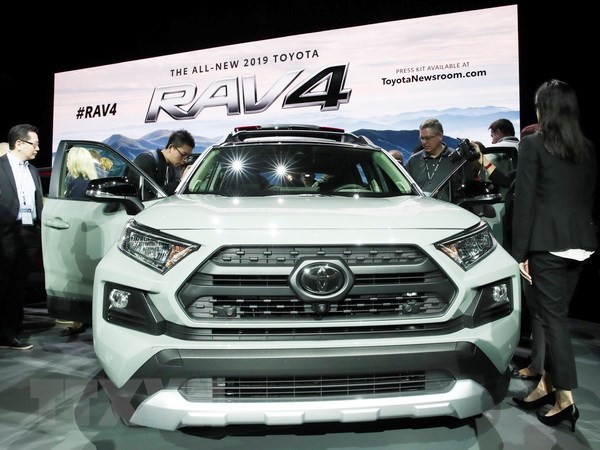
The department’s statistics showed 922 vehicles were imported during June 1-7, tripling the number in the previous week (May 25-31), with a total value of 21.5 million USD.
Of the imported vehicles, 647 were under nine-seat cars, accounting for 70.2 percent and costing nearly 13.8 million USD, with 546 coming from Thailand. Only 36 vehicles were shipped from China, and the rest were from Germany, Sweden, Japan, Canada and the US.
Trucks of all kinds numbered 266 worth nearly 6.6 million USD, 246 of which were from Thailand and 20 from Russia. They were brought to Vietnam through Hai Phong and Ho Chi Minh City Ports.
The customs also reported that nearly 41.7 million USD were spent on spare part imports during the reviewed period, a slight rise over the previous week. The parts were bought mostly from Japan (9.9 million USD), China (8.8 million USD) and Thailand (8.1 million USD).
Car import has been tightened since early this year when the Government’s Decree 116 on car manufacturing, assembly, importation and warranty offering - came into effect from January 1, 2018.
The decree requires importers to get vehicle type approval (VTA) certification when importing cars from the authorities of the importer country. Businesses can be granted VTA certification when importing vehicles from Thailand and Indonesia; however, with vehicles imported from Japan, they cannot obtain it as the Japanese Government doesn’t grant such certification for exported vehicles.
So far only two companies - Honda and GM - have been qualified to import cars for distribution at a significantly lower cost.
Cars imported from Europe in general and from Germany in particular, which are subject to a 70 percent import tax, are also heavily affected by the new regulations of Decree 116. As a result there has not been any model of Audi, BMW or Volkswagen that has been imported to serve domestic consumers so far this year.
The difficulties of importing vehicles to Vietnam has led to a scarcity of supply, thus companies assembling cars domestically, which are given a 5 percent reduction to special consumption tax, and enjoy no import duty tax, are beginning to take advantage of the situation by raising prices.
























